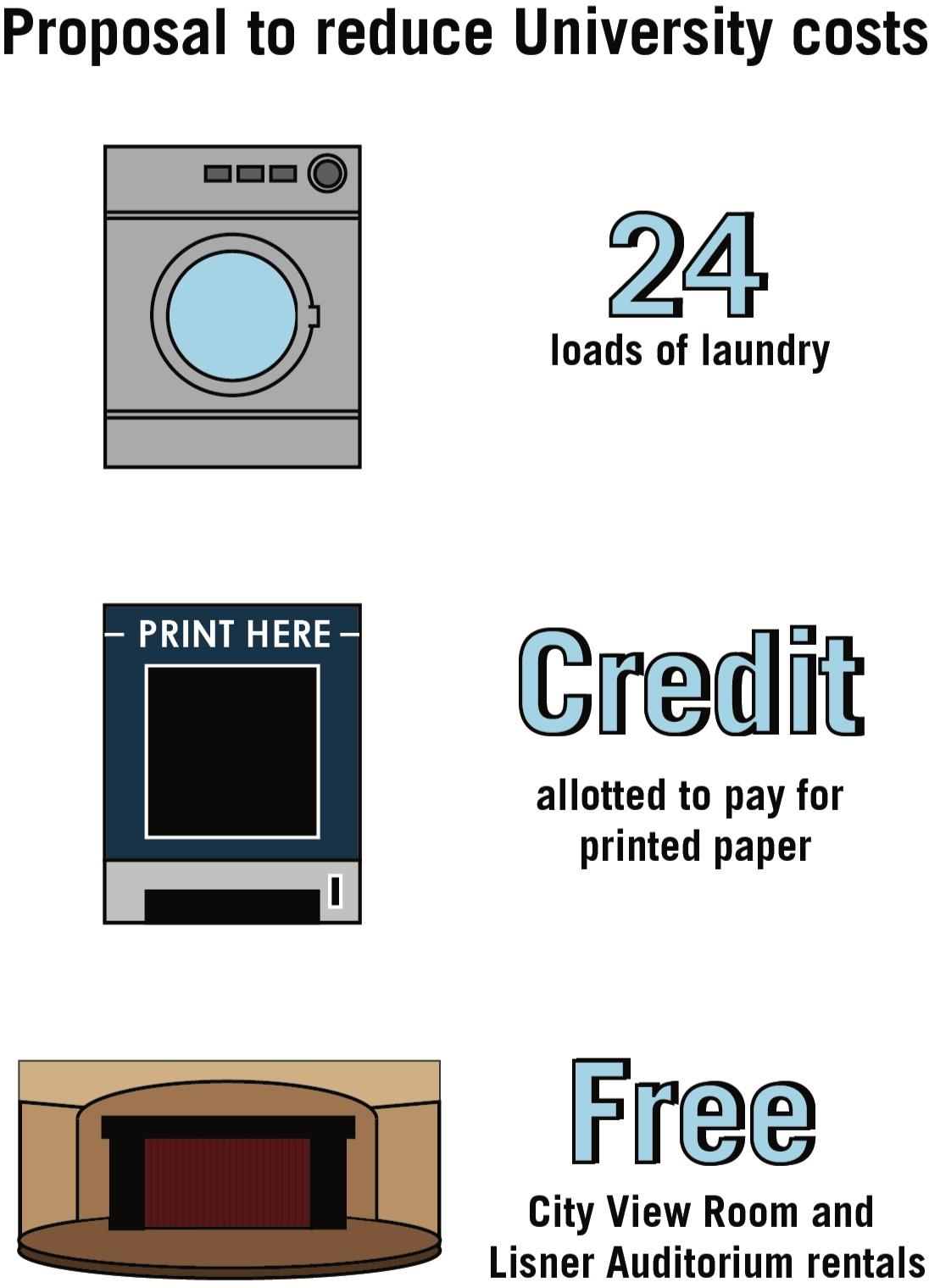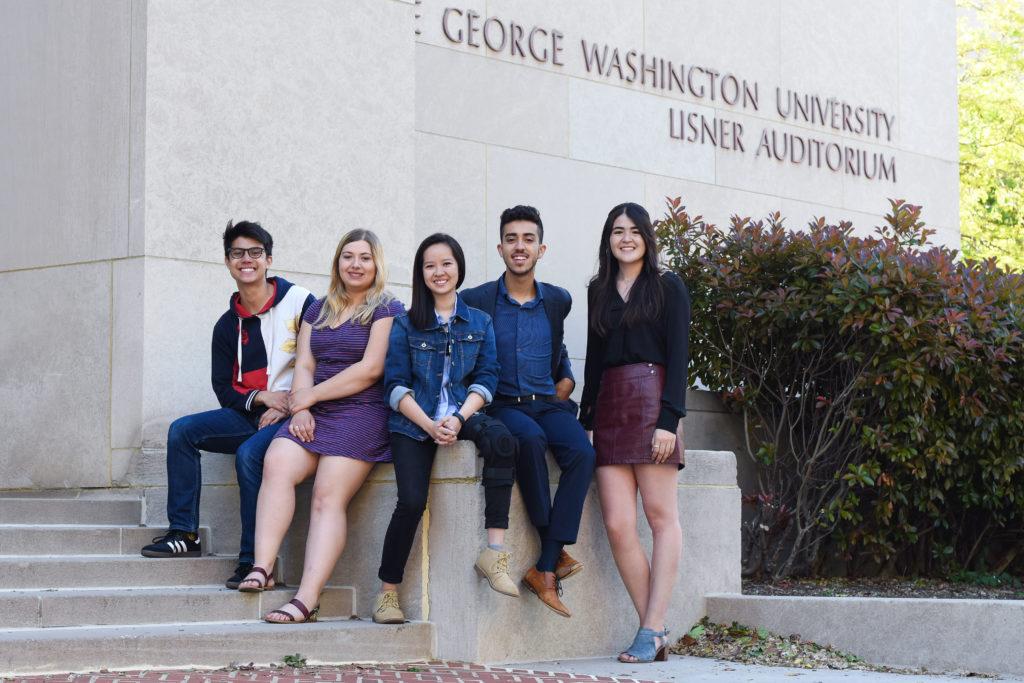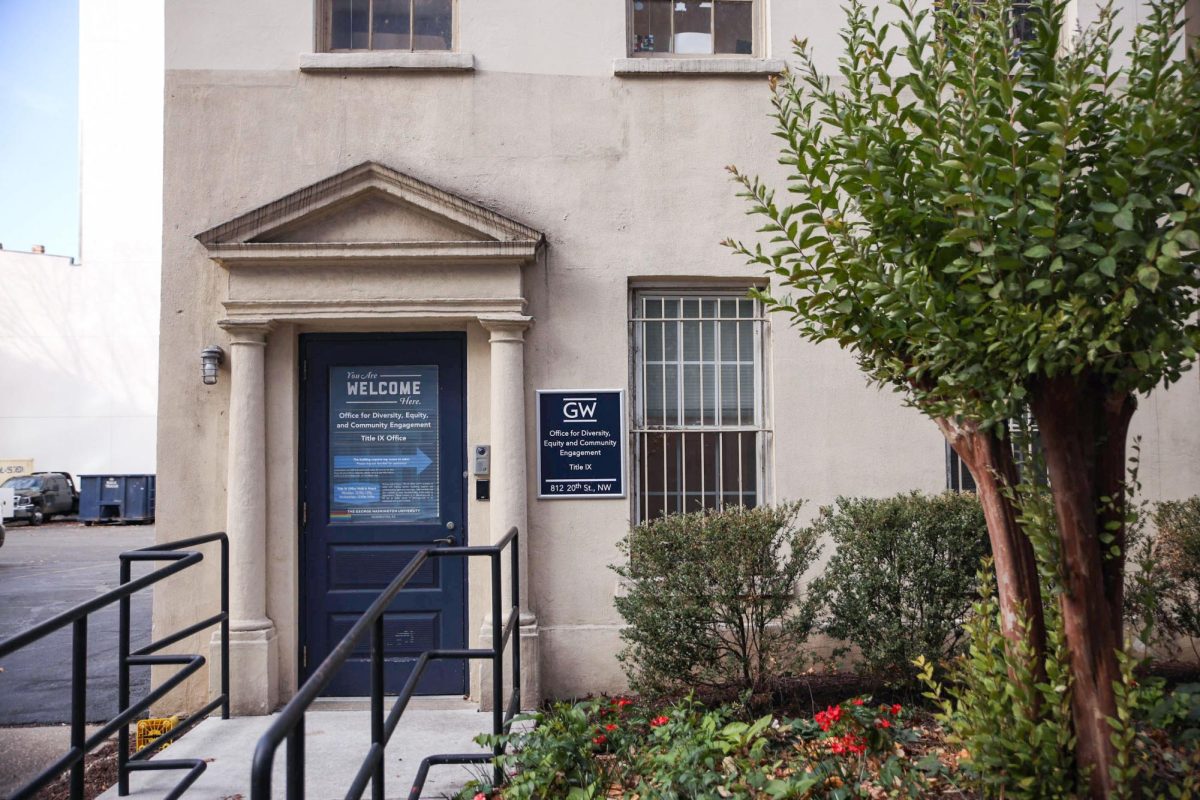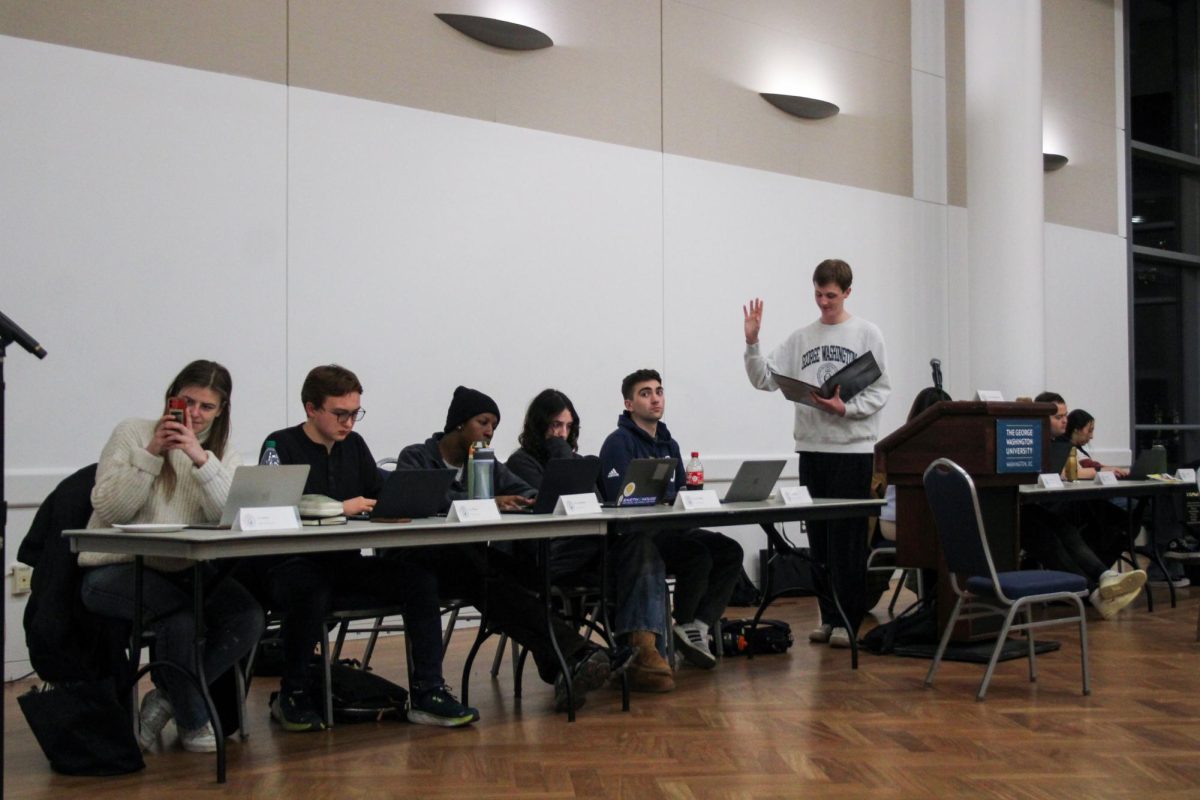Updated: May 4, 2019 at 5:30 p.m.
Students may not need to pay most printing, laundry and rental room fees this fall.
Student Association leaders released a statement Monday proposing to allot students 24 free loads of laundry and to reduce the cost of printing and renting space in Lisner Auditorium and the Elliott School of International Affairs’ City View Room next academic year. The proposal, which must be approved by the Board of Trustees next month, comes after a yearlong push from SA leaders to nix auxiliary charges that up the cost of campus life.
“When it comes to affordability, it affects every single student, right?” SA President Ashley Le said. “We’re leaving with three tangible successes. I think it shows the next administration that they can do that too, that their conversation will be able to make changes.”
SA leaders penned an affordability report last spring outlining more than 10 everyday costs, like dining, laundry and printing, finding that the University’s services are more expensive in nearly every category compared to its 12 peer institutions. Le also highlighted affordability in her top priorities for the academic year, vowing to advocate for lower laundry and rental room fees.
University spokeswoman Maralee Csellar said officials are working with SA members to reduce the costs of rental rooms, printing and laundry. She said conversations to cut the charges are being discussed before next month’s board meeting.
“We are pleased to be working with the Student Association as we continue to focus on improving the student experience,” Csellar said in an email.

Alyssa Ilaria | Graphics Editor
Printing
The SA proposed allotting students with “printing credit” loaded onto their GWorld that they can use at any WEPA kiosk. The announcement does not specify how much credit students will be given each semester.
Students currently pay 9 cents to print one single-sided black-and-white page and 5 cents per side for double-sided black-and-white pages.
SA leaders said switching to a model that allots students a certain amount of money to print would mirror a similar setup at the University of Miami, where students are given $130 annually to print paper. Nassim Touil, the SA’s vice president for financial affairs, said Mark Diaz, the University’s chief financial officer who was previously an official at the University of Miami, brought the idea up earlier this year because the cost of printing is an “educational” fee that some students must pay for class assignments.
“You’re not printing because you want to really, so printing for him was like a no-brainer that needed to be reduced because it is something that is being forced upon students to do by professors,” Touil said.
Laundry
SA leaders suggested providing students with 24 free loads of laundry, or 12 free washer-dryer cycles, this fall. If a student surpasses the allotted number of free loads, which averages to about one washer-dryer cycle every week and a half, they will pay the $3.50 currently required to wash and dry a load of clothes.
Rose Collins, the SA’s vice president for undergraduate policy, said she submitted a proposal to officials in March calling on the University to cut laundry fees. Collins said the move will help students from financially disadvantaged backgrounds and leave students with more GWorld dollars to purchase meals.
The University’s laundry fees are double the amount charged at most of its 12 peer institutions, according to the affordability report. Four schools in GW’s market basket – including the universities of Miami and Rochester – do not charge any laundry fees, the report states.
“Students should not have to give up their cleanliness to get by financially,” Collins said. “As a middle-income student at this University, I have been deeply aware that some of the noneducational costs of attending GW have had more of an economic impact on me than some of my classmates.”
Yannik Omictin, the SA’s chief of cabinet, said SA leaders based their plan to reduce laundry fees on Georgetown University, which offers students 24 free loads of laundry. He said the two schools also use the same laundry service, Caldwell and Gregory Laundry.
“Assuming that the student population uses this minimum, and everyone uses 24 loads, that’s $3.50 every time you go,” Omictin said. “This is what the student population will be saving per semester, that’s pretty big.”
Rental space
SA members also proposed reducing or eliminating the rental fee for Lisner Auditorium and the City View Room, located on the seventh floor of the Elliott School building. Lisner and the City View Room currently cost about $3,500 and $625, respectively, to rent for about a day.
Touil, the SA’s vice president for financial affairs, said the SA finance committee typically gives student organizations co-sponsorships and allocations to pay for rental fees in the two rooms.
The SA finance committee allotted about 20 percent of its funds, or about $250,000, last fiscal year to help student organizations pay to host events in the two spaces, the SA announcement states.
He said eliminating the cost of renting the rooms will allow the finance committee to reallocate funds to more student organizations, especially smaller groups that often return to the SA throughout the academic year to request co-sponsorships.
“By having that money back in our pool to allocate, it will of course trickle into every org,” Touil said.
Bella Gianani, the SA’s vice president for campus operations, said student organizations would still need to pay for additional costs, like labor and sound, while they host an event in the two spaces. She said reducing or cutting the charge to rent either space will allow organizations with smaller budgets to compete with larger groups to hold events in the rooms, increasing demand for them.
“It’s really just a barrier to using that space, and it’s frankly just unfair to have that barrier for a space that we pay for to come to as students here,” she said.
Ilena Peng contributed reporting.








